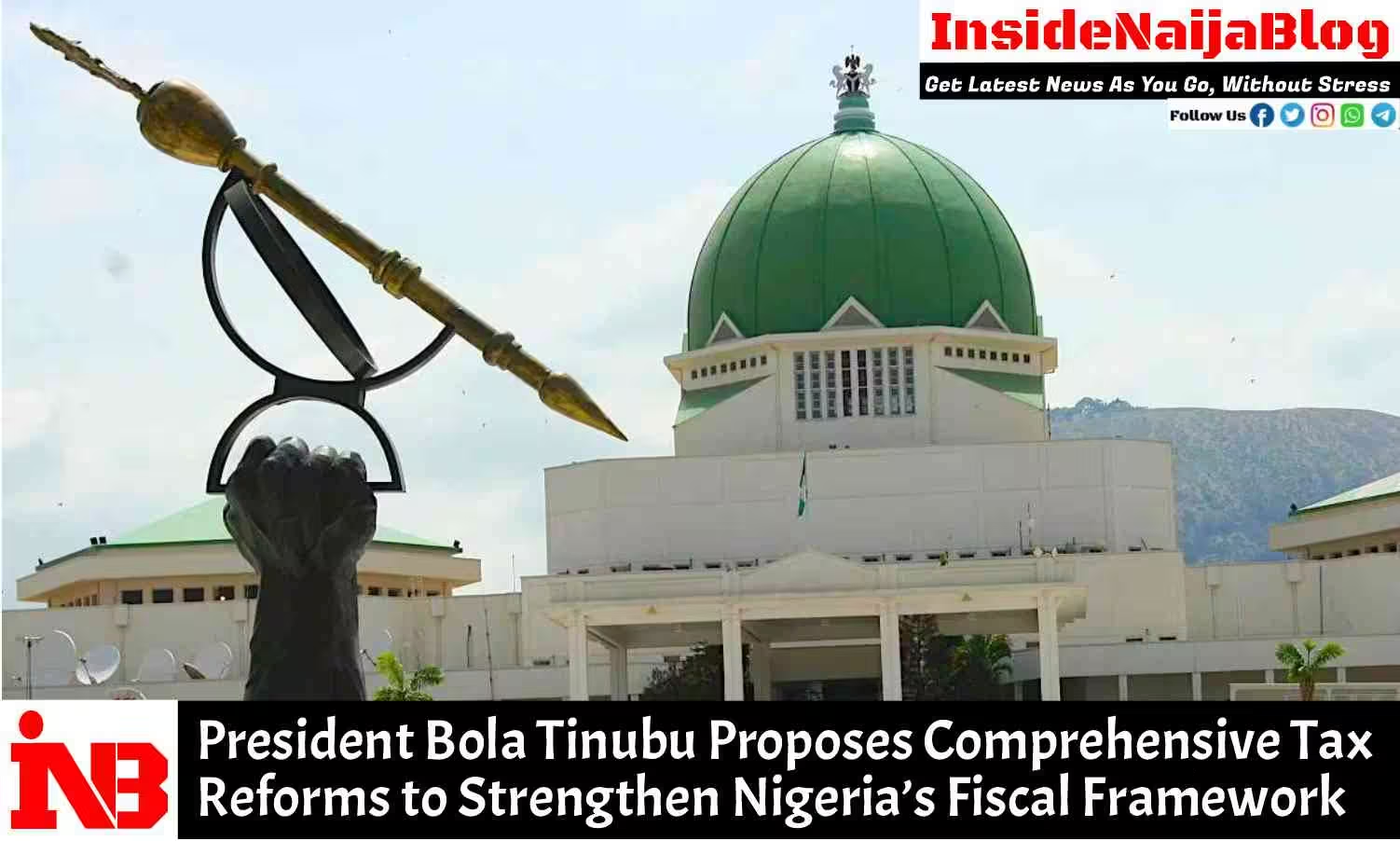In a strategic and forward-thinking initiative aimed at overhauling Nigeria’s fiscal landscape, President Bola Tinubu has submitted four crucial tax reform bills to the National Assembly for thorough consideration. This significant announcement was made during plenary sessions on Thursday, where the details of the proposed legislation were conveyed by Senate President Godswill Akpabio and Speaker of the House of Representatives, Tajudeen Abbas, to their respective chambers. The move is seen as part of Tinubu’s broader agenda to streamline the nation’s tax system and ensure it meets the developmental aspirations of the country.
The proposed reform package includes several key pieces of legislation, each designed to address specific challenges within Nigeria’s tax framework. At the forefront is the Nigeria Tax Bill 2024, which aims to establish a comprehensive fiscal framework for tax regulation throughout the country. This bill seeks to unify the various tax laws currently in existence, creating a more coherent and manageable system for both taxpayers and tax authorities. By doing so, it hopes to eliminate ambiguities that have historically complicated tax compliance and administration.
Accompanying this landmark bill is the Tax Administration Bill, which is focused on creating a clear and concise legal structure for managing taxes in Nigeria. One of the primary objectives of this bill is to reduce disputes between taxpayers and the government, which have often led to prolonged legal battles and an atmosphere of uncertainty. By streamlining tax procedures and clarifying obligations, this legislation aims to enhance operational efficiency and foster a culture of compliance among citizens and businesses alike.
In a significant shift towards modernization, the Nigeria Revenue Service Establishment Bill is proposed to repeal the existing Federal Inland Revenue Service Act. This bill aims to create a new entity, the Nigeria Revenue Service, which will be equipped with the necessary tools and frameworks to improve tax collection and enforcement. The establishment of this agency is a crucial step toward ensuring that Nigeria’s tax administration aligns with international best practices, which is essential for attracting foreign investment and boosting domestic economic activity.
Furthermore, the Joint Revenue Board Establishment Bill seeks to introduce critical mechanisms for resolving tax-related issues. This legislation proposes the creation of a tax tribunal and a tax ombudsman, designed to provide taxpayers with accessible and efficient means of addressing grievances and disputes. By establishing these entities, the government aims to enhance transparency in tax administration and reinforce public trust in the system. This is particularly important in a country where skepticism about governmental processes can hinder compliance and economic growth.
In presenting these bills, President Tinubu highlighted that the proposed reforms are not merely administrative changes but are vital for strengthening Nigeria’s fiscal institutions. He underscored that a robust tax system is fundamental for sustainable economic development and the effective delivery of public services. The reforms are intended to improve the government’s capacity to generate revenue, which is crucial for funding essential infrastructure projects, healthcare, education, and other social services that contribute to national development.
As the National Assembly embarks on the deliberation process, there is a palpable sense of anticipation among stakeholders from various sectors, including business leaders, economists, and civil society organizations. Many are keenly observing the developments, recognizing that the passage of these reform bills could significantly alter Nigeria’s economic trajectory. The proposed reforms represent a bold step toward establishing a more equitable and efficient tax system, which is crucial for the nation’s sustained growth and development.
Moreover, the success of these reforms will largely depend on the collaboration between the legislative arm and the executive branch, as well as the engagement of the public and private sectors. A transparent dialogue among all stakeholders will be essential in shaping the final form of the legislation, ensuring that it meets the needs of both the government and the taxpayers.
In conclusion, President Tinubu’s submission of these four tax reform bills marks a critical juncture in Nigeria’s efforts to modernize its fiscal framework. If passed, these reforms have the potential to create a more streamlined, efficient, and transparent tax system that not only enhances revenue generation but also fosters a culture of compliance and accountability. As the National Assembly takes up this important task, the nation watches with hope and anticipation for a brighter economic future.



